General Insurance Blogs, Articles & Updates by - Magma HDI
Have us call you
- RENEW YOUR POLICY
- BUY NEW POLICY
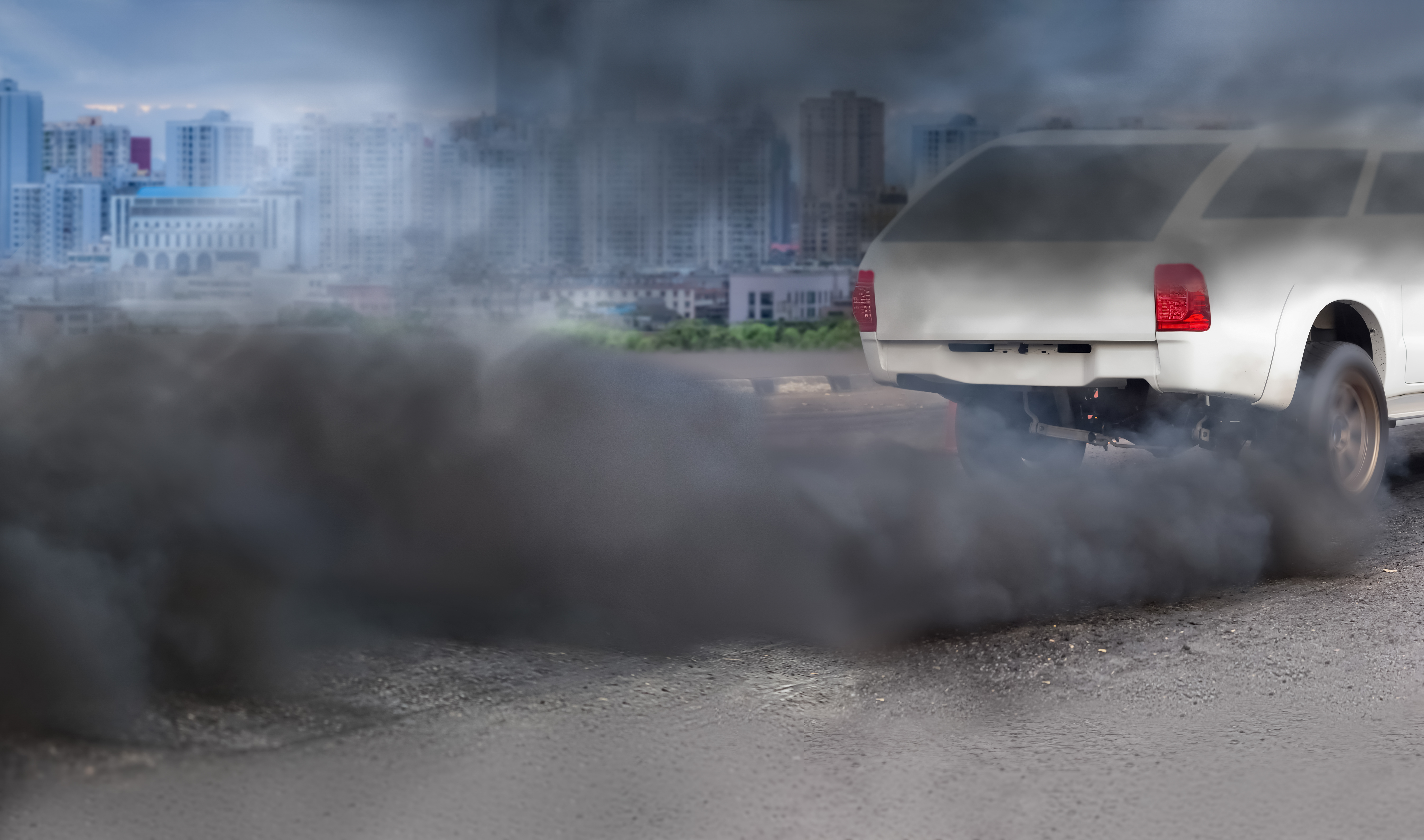
How to Reduce Car Pollution Level During Smog Season?
One of the most serious problems in today’s date is pollution, whether it is air, water, noise or otherwise. Air pollution has led to an increase in health issues and has become an issue that needs to be resolved at the earliest. A major contributor to it is car pollution. There are thousands and thousands of cars on the streets at any given point of time, and they emit smoke and other harmful gases which have only added to the pollution, and the situation only gets worse when there is already smog in the atmosphere due to other air pollutants. As a responsible citizen, and more so as a human, here are some ways you can help reduce the car pollution levels during smog season:
- Try to Warm up Your Car in Advance: During the winters, when the smog is the worst, cars take slightly longer to start, especially if it is a few years old and runs on diesel, so it is advisable that you warm it up a few minutes before you actually have to leave. This way, the car does not consume too much fuel, does not emit high quantities of smoke or gas and thus, helps reduce the pollution a little.
- Turn Off the Engine When the Car Isn’t Moving: It is a very common tip, yet many people do not follow it. When you are at a red light or have pulled over to the side for a short period, make sure to turn off the engine or at least the air conditioning since it puts more pressure on the engine, which in turn burns more fuel. The more you save fuel, the less pollution you cause.
- Do Not Skip on Maintenance: A car is an investment, and you must take care of it. Irrespective of whether you experience a breakdown or not, make sure to take it to the workshop regularly to get the issues fixed. If you continue to drive your car despite there being something wrong with it, it will consume larger quantities of fuel and will thus cause more air pollution. Also, make sure that you do subscribe to private car insurance in india for protection against any losses caused to the car.
- Make Sure to Get A Pollution Check: Every couple of months, take your car to get a pollution check done, so you know its level of emissions and can understand if it does adhere to the pollution regulations. With an increase in the level of air pollution, the government has made is mandatory to get a Pollution Under Control Certificate which states that your car is not releasing a high amount of smoke or gas and is thus, allowed to be driven around.
- Choose to Travel Via Public Transport: One of the best options is to leave your car behind and to take a means of public transport instead, such as the bus or the metro/local train. Indeed, this option might not always be the most comfortable, but it goes a long way in reducing the level of pollution since there are fewer cars on the roads.
- With the way things have escalated in terms of the pollution, it is imperative that you keep certain habits in check to not contribute to it any further. The way people take private car insurance
in India very seriously, they must also take environmental concerns equally seriously.

How to Start Your Career in Life or Health Insurance?
If you are someone that derives pleasure out of helping others, then there are a multitude of jobs out there for you in almost every field. You can choose to become a lawyer, a doctor, a psychologist, an animal rights activist, a teacher or professor, an insurance agent etc. The last profession has become increasingly popular in recent years, with many people becoming health or life insurance agents, to be specific. As a health/life insurance agent, the main aspect of your job is to help people figure out the best policy such as best health insurance in india for parents , one that suits their needs as well as situation the best. By doing this, you would be helping people secure their lives, finances as well as prepare well for the future. However, if you have just decided to become an agent, here are some ways you can actually begin your career in the health/life insurance industry: -
- Do Not Give Up: Perhaps the most important point of all is to not give up easily. The insurance industry is highly competitive and is constantly growing. There are numerous companies and agents out there that are trying to attract clients. When you begin working as a health/life insurance agent, it will not be the easiest to convince people to buy the policies you offer, but you must not quit just because of a few failures. It will take time to finally start getting multiple clients.
- Obtain Your License: A non-negotiable requirement when becoming an insurance agent is to obtain the license to begin working. The license is generally granted by the state where you reside, and to get it, you need to pay a certain amount of money, complete a training course and clear an examination. Without having earned the license, you will not be legally permitted to work as a health/life insurance agent.
- Educational Requirements: While becoming a health/life insurance does not require you to have a certain degree, it is necessary for you to have cleared high school and preferably done an undergraduate course (earned a Bachelor’s degree). It is not mandatory to have information regarding illnesses or medicine in general, but it is a bonus if you can explain certain medical conditions or terms to potential buyers. Once you have obtained your license, you will most probably have to go through training where you apply for a job.
- You Must Develop Your Marketing Skills: This does not necessarily mean that you need to undertake a marketing course, but you should be able to sell the policy to clients. A major part of your job as an insurance agent is to get people to buy the health/life insurance policy. You must be well aware of the details pertaining to the policy so you can explain everything properly to customers and convince them.
Health or life insurance is a necessity in life since it helps cover the costs for any unforeseen illnesses, injuries, or accidents, and so you must have one, not only for yourself but for your entire family. If you already have your own insurance, also make sure to choose the best health insurance in India for parents, so that you can be assured of the fact that everything will be covered when the need arises.
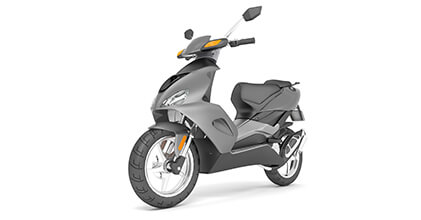
Things to Know before bike alterations
If you are someone who loves riding bikes, then you would not mind spending hours end on trying to make the best out of it, modifying it so that it stands out and reflects your personality.
However, before you decide to start modifying your bike, it’s advisable to get it past your warranty period, so that you won’t be missing out on the factory servicing — something which can otherwise cost you quite a bit.
When you are ready to modify your bike, you need to make sure you have received all the legal permission from the respective local bodies, just to make sure that your modded engine fits well with the law.
Performance modification
A performance mod enhances your bike’s performance. However, insurers are quite wary of you doing it, as it may call for higher risk of accidents. For example, if the mod increases the top speed of your bike, it will go faster, thus increasing the chance of road accidents. To deal with these, insurance companies might increase your premium rates.
Visual modifications
Often, people like to decorate their beloved motorbikes in a way which reflects their personality. A large part of it includes paint jobs and additional frames that give the body a different and unique look. However, a good looking bike — one which particularly stands out — is more prone to theft. Knowing this, insurance companies tend to increase premium rates.
However, if you make some cosmetic changes to your bike — colour, mirrors, and such — then your insurance premiums might not increase. The increase in the premiums is directly proportional to the value of the bike — a basic rule of thumb.
Installing anti-theft devices
If you are particularly wary of your bike being stolen, then you can add an anti-theft device to it. Such gadgets are available easily in the market and work on a GPS system which helps you track your bike, in case it is stolen. It is a great security feature and can also be used to reduce the premium of your bike, as a good security measure in place ensures that there are reduced chances of your bike being stolen. This way, insurance companies have one less thing to worry about.
To make sure that your mod job is right, you must get in touch with a good mechanic and designer who can suggest you the best parts for your bike. It is also essential that you get two-wheeler insurance in India to make sure that your bike is protected from thefts and accidents. Magma HDI two-wheeler insurance comes with attractive premium rates and support for anti-theft devices, which makes sure that the future of your bike is safe.
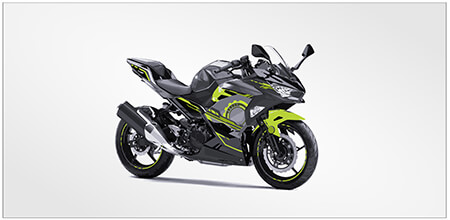
Common Two-wheeler issues that can lead to brake failure and its solutions
Bikes have different components, and each of them has separate sets of functions that serve different needs. However, there is one particular component, the role of which cannot and should not be underplayed — brakes.
Brakes help you slow down your two-wheeler and help you prevent accidents. To ensure your safety, you should always check if your brakes are in good shape before you start riding.
Several factors affect the functionality of the brakes on your bike, such as quality, temperature usage pattern, et cetera. When your brake wears and tears, and starts performing poorly, you must make it a point to check what’s wrong with them so that you can fix them at once.
Here, we will look at a few common issues that two-wheeler brakes face and also learn how to fix them.
1. Wearing out
It is one of the most common issues that bikes face with brakes — they wear out with time. You will notice it as your brake pedal sinks further under your foot and hand (in case of the front brakes). When you feel that this is happening, get the brake pads changed and you will be good to go.
2. Bleeding of brakes
After you install a new brake, it needs to bleed some oil. Do not worry — this process ensures that there are no air gaps in between that could initiate a brake failure. If this process does not take place properly, then your brake will also stop functioning. An effective way to deal with this solution is to get the bleeding done thoroughly, ensuring that there are no air gaps left inside.
3. Leakage of brake fluid
Brake fluid leakage is something that you will see now and then as your bike gets older on the road. However, if you encounter this frequently, it is highly likely that something is wrong — the oil is leaking from a component that is not fitted correctly. To fix this issue, you need to tighten up the parts of the brake, making sure that there is no room for any leakage.
4. Less brake oil
If your bike has less brake oil, then it may lead to a complete brake failure — something that you might not want at all. Keep on topping up your brake oil (they come for a cheap price) to avoid this situation.
5. Misalignment of the master cylinder
The master cylinder happens to be one of the essential parts of the brake system. If this cylinder gets misaligned due to inappropriate pressure on your brakes, it may lead to some severe brake problems, and might even lead to oil leakage. To fix this, you have to fit the cylinder properly and to check on it from time to time, in case you are noticing a deterioration in the brake’s performance.
If your brake is right, then your ride will be safe. To ensure further ride safety, you must Buy Two-Wheeler Insurance Online, which can protect your bike from accidents. The Magma HDI two wheeler insurance also comes with personal accident cover, which means that your riding experience will be as safe as ever.
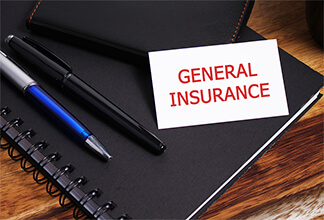
Everything you need to know about general insurance
The term insurance is often used very loosely. Most people think that General Insurance Plans only include car, health etc. There are even misconceptions regarding the policy coverage of these plans. Read on to see what exactly general insurance stands for and the different kinds of plans which come under it.
What are the types of general insurance and their benefits?
General insurance is a contract between the insured and the insurance company for financial protection against loss, damage, theft or other liabilities that may arise. Broadly speaking, it includes all kinds of insurance except life insurance. This financial protection may be in the form of cashless services or reimbursement. Given below are some of the most popular general insurance plans available to you today.
1. Health insurance:
A health insurance policy essentially covers the costs of treatment of a medical condition or accidents. Generally, it includes medical tests, treatment for critical diseases, pre and post hospitalisation expenses etc. as mentioned in your policy wordings. You can also opt for add-on features such as maternity covers and personal accident covers to customise your plan for you and your family.
The benefits of a health insurance plan also include tax benefits under section 80D of the income tax act.
2. Motor insurance:
Whether you have a two-wheeler, a car or a truck, a motor insurance plan will offer you financial protection against loss resulting from damage, accident, theft etc. Broadly, a motor insurance policy includes-
a. Third-party insurance: This is the compensation provided by the insurer for damages caused by the insured to another person or another vehicle. Any individual getting motor insurance must have a third-party liability cover as it is mandatory by law. It can easily be purchased with the purchase of your vehicle itself.
b. Comprehensive insurance: This policy will cover damages occurring to your vehicle due to accidents, theft, natural calamities, fire etc. This will be in addition to third-party liability and will also reimburse you for theft, repairs etc.
3. Travel insurance:
Travel insurance pays for financial losses that arise during one’s travel within India or abroad. The policy might be a single trip plan which covers one trip taken within180 days of purchasing the insurance or a multi-trip plan covering multiple trips during a year. Generally, the scope of a travel plan includes reimbursement for baggage loss/delay, missed flight, medical expenditure, loss of passport etc. You can further pick a plan for individuals/families or even pick between domestic and international travel insurance based on your needs.
4. Home insurance:
Since getting your own home is a big-ticket investment, it is important to insure it. Home insurance plans financially compensate you for any damage to your home and valuables within the property due to natural and man-made disasters, fire, burglaries etc. You also have the option to get additional coverage with add-ons.
Irrespective of the kind of general insurance, the following factors need to be kept in mind before buying a policy:
Assess your needs: It is essential to evaluate your specific requirements instead of going only by someone else's recommendation or even a popular plan. For example, a health plan could either be an individual or a family floater policy.

Benefits of getting car insurance
An increasing number of vehicles on the road, along with the insufficient infrastructure to support them, is leading to a rise in the number of accidents and fatalities. There were over 4.61 lakh road accidents just in 2018 and these are only the ones that were reported. Car insurance becomes very important at times like these. It saves you from paying massive amounts to repair the damages to your car.
Still not convinced? Here are some of the benefits of buying a car insurance policy.
Protects your finances in case of an accident
If an accident happens, your Car Insurance can protect your finances by covering the repair expenses. If there's a third party involved and you are liable to pay them for any property damage or medical help, you can rest assured as your insurance can take care of that as well. In fact, it doesn't even have to be a road accident, as it also covers claims resulting from man-made and natural calamities like storms, floods, theft, vandalism, or riots.
Offers coverage for theft
You spend so much time, effort and money on buying a new car. The last thing you'd want is for someone to steal it. As sad as that is, it's not impossible. Which is why a good motor insurance policy also covers you against it. If your car is stolen, your policy will reimburse you the cost of your car. It can also cover the cost of repairs resulting from the break-in attempt.
Avail cashless services
When you buy motor insurance, you are entitled to getting cashless services at your insurance provider's network garages. This essentially means that you can get covered services without having to pay a single rupee. Say you damage your vehicle, all you need to do is go to your nearest network garage, show proof of your insurance and get the repairs done.
Covers personal accident liabilities
Motor insurance policies also cover disability or death leading from a car accident. So your motor insurance covers both you and your vehicle. For a person other than the owner/driver, you can separately buy a personal accident cover. The cost of your cover will depend on the extent of coverage you choose
Provides customization with riders
Riders or add-ons offer additional coverage on your basic motor insurance plan after payment of a nominal fee. The standard rider options are:
- Zero depreciation add-on where your insurer bears the cost of repairs without considering the depreciated value of your car. This feature helps you maintain the value of your car despite wear and tear.
- Road-side assistance add-on helps you out on the spot whenever you encounter any issues such as a flat tire, dead battery etc. You may even get additional road-side assistance with Magma HDI.
- Engine protection add-on covers damages to the engine due to malfunction, water damage or leakage of lubricants.
- Loss of personal belongings add-on is protection against accidents or burglaries where you end up losing valuables such as your phone or laptop. Your insurance provider helps you out with this cover by reimbursing you for your loss.
So, having the right car insurance is like always having someone watching your back when you’re driving your vehicle. It ensures the safety of your car, passengers, and pedestrians.

The Evolution of Health Insurance
Health insurance is a necessity in today's age, but the easy accessibility and wide range we enjoy today weren't always there in the past. It's safe to say that health insurance policies in India have forged their path over the years. But do you know how? Here's where we can help you with facts about the insurance you can't do without these days.
How did it begin?
Since the independence of India in 1947, our healthcare system revolved around government schemes and plans. The life insurance system that dates back to 1818 was the first of its kind for Indians. The popularity of life insurance in India was attributed to the low life expectancy and closely-knit family systems.
However, with liberalization in the early 1990s, healthcare delivery improved with an increase in disposable income. As a result, life expectancy increased to 65 years by the year 2011. The nineties also saw an influx of other things such as lifestyle diseases and consistently rising medical costs which made health insurance the invaluable commodity that it is today.
Crucial developments and current scenario
The IRDAI or Insurance Regulatory and Development Authority of India's legislation of the year 2001 is a vital milestone for Health Insurance In India. It opened new avenues for investment by private players in the industry. Over the years, the advancement of treatments and cashless claims enhanced the popularity of health insurance policies among buyers.
Despite all these developments, the sector is largely dominated by government-owned enterprises and its subsidiaries that account for nearly 60% of the total market share. Private health insurers are increasing their base and outreach mainly in the tier-1 and tier-2 cities with features like cashless payments and in-patient reimbursements. A major goal of health insurance is reaching all parts of the country.
Challenges for health insurance
Over the past two decades, the health insurance providers in India are consistently struggling to provide accessible and affordable care to the masses. It has many challenges that need critical analysis and solutions. The main challenges in this sector are:
- Lack of awareness about the importance of health insurance. For instance, people don't realise how much difference a comprehensive health insurance can make at the time of an emergency.
- Gap between affordability and accessibility because the rural population relies on government-based facilities as the private sector does not cater to their basic needs.
- Differences in service quality due to multiple levels of care delivery system. This increases the overall costs and causes quality concerns.
- Ignorance on the part of consumers which makes them avoid getting insurance until the last minute.
- No strong regulatory framework to standardize the healthcare delivery system.
These are only some of the glaring issues we face in our country. Both consumers and insurance providers need to do their part so as to bridge the gap which will allow everyone to get healthcare in an easy and fair manner.
Future trends in health insurance
With the internet and other media platforms, more and more customers are beginning to understand the importance of health insurance. As a result, the number of policies sold has doubled in the last ten years.
The millennials have become a key focus for the major players due to their increasing awareness and their numbers in the workforce. Incentives such as tax benefits also encourage the working class to invest in health insurance plans.
In a nutshell, a focused approach of evolving cost, quality, and access show a promising future for healthcare insurance in India.
Standardization of adequate health care provisions is still an aspiration which must be realized over the years.
To get the best of Health Insurance Policies In India, Check out Magma HDI.

5 Reasons why you should have an Individual Personal Accident Policy
There is a false sense of security in most individuals, where one feels like they can never meet with an accident, but like as the saying goes, it is better to be safe than sorry. No one wants to experience an unfortunate incident, but whether due to your mistake or someone else’s mistake, you can meet with an accident anywhere and anytime. Although no one can control such situations, you can certainly prepare for it.
With the number of vehicles steadily rising, across the country, the possibility of a car-related tragedy also increases. In situations as such, you could be staring at high costing expenses on hospital bills, as well as a loss of income due to being bed-ridden. Having an individual accident policy will take care of all these emergency expenses.
What is a personal accident policy?
Personal accident policy offers insurance cover to policyholders in case of an accident or injury caused due to any given reason. The insurance company will reimburse the policyholder in cases of serious injuries, permanent disability, or death, accidentally caused, according to the terms and conditions of the policy.
You can buy your personal accident insurance online as well as offline, as per your preference.
Why should you have a personal accident policy?
There are various benefits offered by a personal accident policy, which make it necessary for you to have one, such as:
- Reimbursement in case of disability: If you face an accident and suffer a temporary or permanent disability, you can claim compensation from the insurance company. The company will assess the nature of the injury or disability and give you compensation as per the guidelines of the policy. This will support you and your family financially during such tough times.
- Hospitalisation and other expenses are taken care of: All hospital bills and cost of treatment are covered under the policy. In case of death, the insurance company will pay for the repatriation, funeral, and ambulance charges.
- Reimbursement for modifications: If the accident has left you wheelchair-bound, then you need to modify your home or vehicle to suit your needs. Any expenses incurred for such adjustments necessitated by the mishap can be reimbursed from the insurance company.
- Payment of death benefit: If the mishap results in unfortunate death, then the insurance company will pay the death benefit amount, as per the policy terms and conditions, to your family members, offering them financial support.
- Transportation of family: If you are admitted to a hospital after an accident and the hospital is more than 150 km away from your home, the insurance company will pay for the transportation costs incurred by your family.
To avail such benefits in the time of emergency having personal accident insurance online or offline is imperative for the financial well-being of your family.

Benefits of daily cycling
In modern times, various lifestyle-related ailments such as diabetes, hypertension, depression, obesity, etc. have started affecting people from a young age. Due to 24*7 use of smartphones, unhealthy eating habits, and a lack of physical exercise, more and more people are getting affected by these lifestyle diseases. While you may have thebest health insurance policy in india , you need to engage in regular physical exercise to stay fit and healthy. There are various forms of exercises that you can indulge in, but the benefits of daily cycling are too good to be ignored.
Cycling is regarded as one of the best ways to stay away from lifestyle conditions and reduce the risks associated with a sedentary lifestyle. Additionally, it is one of the cheapest, enjoyable, and useful physical workouts. If you are still unsure about the benefits of daily cycling, here are the health benefits of regular cycling:
- Fewer chances of injury: Cycling hardly causes any strain and can be enjoyed by people of all age groups. There are minimum chances of injuries while cycling, as compared to other forms of exercise.
- Time-efficient: Cycling is one of the most time-efficient exercises you can engage in. Not only does it offer you several health benefits, but it can also be used as a means of transport. It will help you get rid of your inactive lifestyle and save your travelling expenses as well.
- Easy to learn: Even if you do not know how to cycle, it will only take you a few hours to get the hang of it. There is no need for strong physical skills, and it does not need a lot of practice to learn it; it is one of the easiest exercises to learn. You can start from low-intensity mode and increase as you get used to it.
- Boosts your stamina: Cycling engages several muscles in your body and thereby helps boost your stamina over time. It also improves your lower body strength as well as aerobic fitness.
- Reduces stress levels: Going for cycling in the morning helps you come closer to nature. The fresh morning air acts as stress-buster and enables you to feel relaxed and rejuvenated.
- Freedom from obesity: Cycling is one of the most useful workouts to help you get rid of excess fat from your body. It boosts the metabolism rate and helps build muscles. Within a few weeks of cycling, you would start witnessing a reduction in your weight; and would feel active and fit.
- Reduces the risk of specific cancers: Research has proven that regular cycling reduces the risk of various types of cancers such as breast cancer, colon cancer, and bowel cancer.
With various health benefits on offer, cycling is undoubtedly one of the most useful forms of physical exercises available. To enjoy good health and freedom from health-related stress, it is essential that you eat a healthy diet, engage in regular physical activity, and subscribe to the best health insurance policy in India.

How have basic Ayurveda tips transformed our lives for the better
Ayurveda is not just about natural herbs and spices and consuming them raw. It is more about how you can boost your immune system and increase the efficiency of your organs to energise your bodily functions. Unlike the traditional methods of human living, Ayurveda emphasises ramping up your everyday lifestyle by prioritising your mental and physical health remain in check. It helps you in achieving the true meaning of “health is wealth” without distinguishing between the value of the mind and the body.
Are you looking for more information on how Ayurveda would help you change your lifestyle for the better? This blog will help you gain a positive outlook on this old Hindu system incorporated into the Atharva Vedas, the last of the four main Vedas in history. So, let’s get started.
1. Early to rise:
We all have read “early to bed and early to rise makes a man healthy, wealthy and wise”. The same has been repeatedly told to us by our parents and every adult you might have encountered. Well, Ayurveda reaffirms the truth in this statement. It states that the morning is the freshest and the purest time slot of the entire day, which can be super productive if appropriately utilised.
Waking up around 4:30 AM-5:00 AM daily will help you achieve positivity and a more robust and healthier outlook on life. It will also regulate your bodily functions and give you a headstart to the day compared to others who groggily wake up late.
2. Pay attention to your eating habits:
Ayurveda instructs that you practice a healthy habit of eating and calls it “ayurvedic eating,” which involves the importance of consuming natural and green vegetables and fruits.
It mentions the negative impacts of junk food and how essential it is to avoid such oily items loaded with unwanted carbohydrates and fats, which are difficult to break down and get deposited in your body. This leads to several major diseases which can potentially endanger your health in the long run.
3. A morning refreshing drink goes a long way:
We all have heard that consuming water with a few drops of honey in the morning helps rejuvenate your body as you begin your day. Add a teaspoon of quality honey in half to one glass of water and consume it as you wake up. This helps eliminate all the toxins in your body, and this mixture also helps kill several types of harmful bacteria.
4. Pay attention to your sleep:
After an entire day of work and other activities, your body and brain get exhausted. And to re-energise and detoxify all the tiredness, you need to sleep a good eight hours. Sleeping properly boosts your health and strengthens your immune system. It also helps in proper blood circulation, thus providing you with sufficient energy to function throughout the next day and take on the challenges the day presents you with.
Other Ayurvedic practices include walking. It is considered one of the best exercises one can do at their own pace without exhausting themselves for hours at the gym and taking additional supplements. Creating a routine and sticking to it has been given a lot of importance in Ayurveda. Your body functions better as it slowly gets habituated, thus providing a structure to your day instead of just letting you wonder how to go about processing and working on multiple things.
We are all aware of how unpredictable life can be as we face the pandemic and extreme situations. To battle the uncertainties of life, we must have some assurance that does not land us in financial stress. It would be best to get general insurance to combat health issues and not lose money on your assets. Explore the options provided by the best General Insurance companies in India, and buy a reliable health insurance plan. This will give you the confidence to lead a healthy life where health expenses don’t feel a burden!
Click HERE to learn more about the insurance benefits of various insurance benefits of various general insurance companies in India.
Disclaimer: The information provided above is for illustrative purposes only. To get more details, please refer to policy wordings and prospectus before purchasing a policy.

Let’s understand the different types of property insurance you can invest in based on your asset type
Building a property from scratch can be a time-taking and intimidating process. Whether commercial or private property, the construction cost can burn a hole in your pocket. This is precisely why property insurance becomes necessary to protect you, your family, and your assets from any unforeseen tragedies that might occur.
Property insurance provides cover for various misfortunes, including but not limited to fire, natural calamities, or robbery. However, choosing an insurance specific to your asset type is vital for the best coverage and benefits. This blog gives insight into the various types of property insurance available in the market based on your asset type.
1. Office insurance:
Office insurance is essential for all office premises, including public and private offices, call centres, etc. This insurance plan covers office owners against damages from unforeseen circumstances like fires, storms, lightning, hurricanes, cyclones, etc. This policy also covers other possible threats, such as the theft of office appliances.
2. Construction sites insurance:
Construction sites are places with a high probability of accidents. The misfortune of contractors is that the property remains their liability till the entire construction is completed and the property is handed over to someone. Whether it is due to bad weather or some water damage, it is a possibility that the building might collapse onto itself. It is essential to get construction site insurance to keep your assets secure against these occurrences.
3. Commercial insurance:
This insurance covers the policyholder from the losses incurred from destroying commercial properties such as warehouses, offices, factories, hotels, etc. Taking a suitable commercial insurance policy can be the best investment for business owners to safeguard themselves from the enormous losses faced by man-made or natural calamities.
4. Landlord insurance:
Landlord insurance is much like the homeowner’s insurance with one significant addition. The addition is the compensation of lost rental income, which is not covered by any other policy.
5. Renter’s insurance:
Tenants are usually in a dilemma regarding the safety of their belongings in rented accommodation. If their prized possessions are stolen, or there is some natural calamity that results in the tenant incurring losses, there is no way that the homeowner will pay for it.
So, the best option for tenants is to get insurance that covers all their belongings. Renter’s insurance is very similar to the homeowner insurance policy. One significant difference is, however, that this policy is exclusively meant to recover financial losses sustained by the policyholder if their belongings (can include clothes, jewellery, and appliances around the house) are damaged because of man-made or natural calamities.
6. Homeowners insurance:
Homeowners insurance or HOME INSURANCE is the most widely acquired type of property insurance. This is for a good reason. A home is a significant investment, and it is imperative to be secure against the various misfortunes that might befall it.
An appropriate home insurance covers all the financial losses the homeowner might incur in the event of any significant damage due to an accident or mishaps like burglary. Additionally, it also covers any possessions that have been destroyed in the mishap.
Our home is the greatest property asset, and safeguarding it from potential damages should be our primary objective. Having the most suitable home insurance is a surefire way of protecting from financial mishaps and adding the safety net of damage coverage.
Property insurance gives the property owner security and credibility, which is important for peace of mind and financial safety. Thoroughly researching the best insurance policy is essential to have the optimum coverage for your assets.
Click HERE to know more about home insurance.
Disclaimer: The information provided above is for illustrative purposes only. To get more details, please refer to policy wordings and prospectus before purchasing a policy.
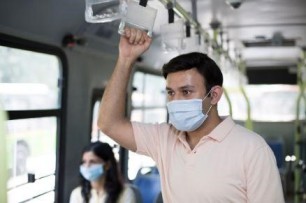
Why is public transport the best way to travel and explore places
Exploring the novelties and embarking on new adventures is what travelling is all about. From dingy roadside motels to premium five-star hotels, travel experiences make you more confident and better prepared for everything. To some people, it is a much-needed respite from the mundane routine of everyday life; for others, it is a way of life. Some people believe in setting aside a part of their earnings for annual family trips, while others earn to travel. Common among all these lifestyle choices is the desire to explore newness and the different versions of the planet.
There are multiple ways in which you can explore a city. You can accompany a tour group, walk around, and indulge in local life. But, in this article, we will discuss why public transport is the best way for you to enjoy your vacation.
1. Closer to the local life:
Cabs and rentals will ensure an easy commute, but if you want to indulge in the lifestyle of the locals, using public transport is a must. The locals frequently use public transport to carry out their day-to-day chores. Interacting with them will not only help you gain a better insight into the culture of the place, but it will also help you figure out where the untouched locations are. Many local restaurants and establishments are unexplored by the tourism industry. Local knowledge about these will help you explore the unexplored.
2. Cheaper:
People often complain about being scammed by taxi services and other car rentals. However, with public transport, you can avoid being scammed altogether. Since locals frequent this mode of transportation, they can't charge you extra. Some governments facilitate subsidised public transport rates, so the overall cost of your daily commute becomes considerably inexpensive.
3. Time to relax:
If you intend to book a car for yourself, be prepared to stress out about directions constantly. You might also be stuck in long traffic jams if you decide on exploring the city. Opt for public transport like trains to escape heavy traffic and the tiresome drive. During your commute, you can either look out of the window and enjoy the views or catch a nap before reaching your next location. This small break will help you be rejuvenated for the next part of your trip.
4. Personal health:
Public transport is a boon for you if you are a fitness enthusiast and cannot squeeze in the time for your workout in your jam-packed itinerary. Opting for public transport indicates that you will need to walk between stops, stations, or ports, depending upon the location and the type of transport. Not only does it prompt you to walk more, but it also helps you build an appetite so that you can eat more of the local cuisines guilt-free.
5. Responsible towards environment:
Public transport saves a considerable amount of fuel as compared to personal vehicles. The stark increase in carbon dioxide emissions has resulted in a rapid rise in global temperatures. Opting for public transport is a small contribution you can make to the environment and a better future.
These are a few reasons why public transport is the best option for you while travelling. Interact with the locals and explore the city's novelties while taking public transport. Remember that no trip is complete without travel insurance. Any risks you can incur during your vacation, including theft, financial losses, injuries, etc., will be taken care of by an insurance policy. To protect yourself and your family against such expenses, do not forget to buy insurance policy online. You can compare multiple policies, analyse their benefits and premiums, and choose from several online options.
Click HERE to buy insurance policy online.
Disclaimer: The information provided above is for illustrative purposes only. To get more details, please refer to policy wordings and prospectus before purchasing a policy.

Invest in the fire and special perils policies for advanced protection of your property
Building a property from zero is a daunting process. It takes time, effort, and a high budget to construct your dream home or your dream office. Despite all this hard work, there are times when misfortune strikes unexpectedly. It can be a short circuit caused by lightning, a storm, flood, or cyclone that might drown your premises.
You won’t want your property to fall prey to such casualties. Despite taking all precautions and looking after safety measures, still, you cannot avoid the probability of mishaps. As rightly said, we must always pray for the best but prepare for the worst.
So, it is wise to be smartly insured against any such happenings. A policy that covers most misfortunes, either natural or man-made, is the Fire and Special Perils Policy.
What is the fire and special perils policy?
A fire and special perils policy is a contract where the insurer secures you and your property from any damages that may occur due to natural calamities such as storms, cyclones, and resulting floods, lightning, or man-made perils such as riots, strikes, or malicious damages.
Even though adversities like these may not strike you as something you should pay immediate attention to, it’s best to get insured before the situation gets out of hand. This will give you and your loved ones some much-needed peace of mind.
Key features of this policy:
This policy usually covers several contingencies, including
1. Fire hazard: Your property and possessions are insured if a fire breaks out.
2. Lightning: If any damage is caused by lightning impact
3. Explosion/Implosion: Your property is insured against an unforeseen explosion. If the building collapses inwards due to the failure of a system, that is also insured within this policy.
4. Human hazards like riots, strikes, and malicious damage: In case of these man-made hazards, your possessions are insured against visible physical damage.
5. Natural calamities: No one can accurately predict precisely when a natural disaster will occur. So, it gives great peace when your property is secured against these unforeseen calamities like storms, cyclones, typhoons, tempests, etc. This policy also insures you and your loved ones against floods, and landslides, including repairing your property.
6. Accidental mishaps: The repair charges are covered in the rare chance of accidental damages like the bursting of an automatic sprinkler installation.
7. Missile testing operations
8. Groundworks and other excavations
Some of the add-ons you can opt for in this policy are
1. Debris removal
2. Destruction in the event of a forest fire
3. Loss of rent
Features that are not covered:
Knowing the pros and cons of each policy before purchasing it is essential. There are a few instances where this insurance policy does not cover damage and loss to your property. These are
1. Destruction and damage caused by wars, being invaded by a foreign entity, civil war, rebellions, or in the case of military or usurped power
2. Nuclear war and allied risks
3. Pollution and contamination
4. Damages incurred due to volcanic eruptions or earthquakes
5. Damages incurred due to the loss of unclaimed precious stones or works of art
6. Acts of terrorism or militant activities
It takes a lifetime to build assets like property, so it doesn’t come as a surprise that one would want to get it insured against unforeseen misfortunes. The Fire and special perils policy are one of the most popular insurance policies chosen by homeowners, SME’s and big corporations alike. This holistic plan can protect you and your loved ones and also comes with a lot of flexibility.
You may even invest in the best HOME INSURANCE IN INDIA to protect the content of your home from incidents like theft or damage to the building. Investments that reap fruitful outcomes go a long way in safeguarding your dreams.
Click HERE to know more about the best home insurance in India.
Disclaimer: The information provided above is for illustrative purposes only. To get more details, please refer to policy wordings and prospectus before purchasing a policy.
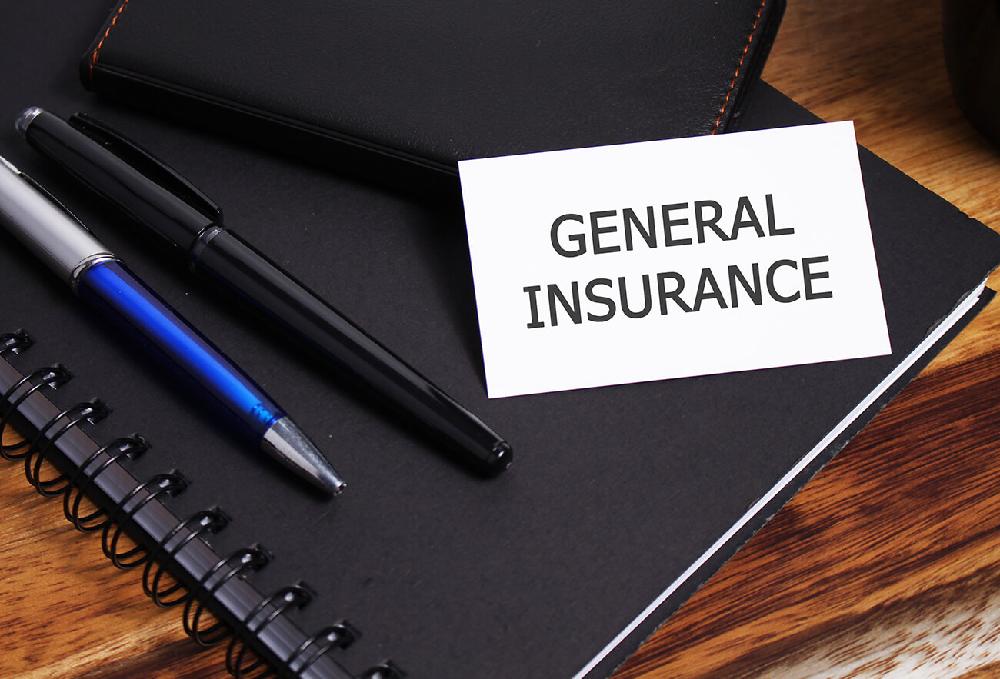
What are the different types of general insurance policies?
In modern times, uncertainty has become a part and parcel of life. You can take as many precautions as possible but certain unwanted situations can always take place. These situations can be related to your health, your life, or your possessions like car, mobile, house etc. Due to any man-made situations or natural disasters, you can suffer losses on various accounts. In such situations, an insurance policy is something that can reimburse you for the losses suffered to a great extent and reduce the monetary damage.
Although insurance policies cannot prevent the happening of any unfortunate incident, they can help minimize losses suffered due to such incidents. Irrespective of the fact whether you decide to Buy Insurance Policy Online or offline, having an active insurance policy is a must.
Insurance policies are available in various types and categories. The two main categories are life policies and non-life policies. The life policies are the ones that deal with ‘life’ of an individual. On the other hand, the non-life policies are the ones which deal with all other types of mishaps that can occur. These non-life policies are also called general insurance policies.
What are the different types of general insurance policies?
Following are the different types of general insurance policies that are available, whether you buy insurance policy online or offline: -
- Health insurance covers all the expenses related to a person’s health when he/she gets hospitalized due to problems like any illness or any accident. It also covers situations like an annual health checkup, daycare procedure, psychiatric support and other health-related situations. Specific extensions of these insurance policies cover critical illness, maternity-related situations and organ donation. The premium of a health insurance policy is based on the individual’s age, history of the health, any genetic disorders and other cases like that.
- Travel insurance losses suffered while travelling to domestic or international locations are covered by the travel insurance policy. Situations like loss of baggage or passport, hijacking, medical expenses and other travel-related situations that require settlement are covered. Any accidental deaths caused during the travel are also compensated by the insurance policy. Some insurance companies also allow the travel insurance policy to be free of any deductibles. In this situation, the company covers all the expenses.
- Motor insurance has further two types of policies that involve comprehensive and third-party policies. The third-party policy involves the settlement in situations that involve any damage caused to another vehicle or person by your vehicle. The accidental expenses caused by your vehicle are settled by the insurance company. Comprehensive policies also cover the damages caused to your vehicle. It is a policy which encompasses the features of third party policy in it.
- Marine insurance is useful in reimbursing of losses cause to goods that are being transported through cargo ships to national as well as international locations.
- Commercial insurance policies deal with the business-related insurances that involve loss of property, professional liability, marine damage and other such expenses.
- Home insurance the insurance covers the losses related to theft, fire, or other damages caused to your home.
- In case you are interested in buying a general policy, you can do so by contacting any insurance company, or you can even buy insurance policy online. The quotations will be provided to you in both online and offline cases. You can look at it and in case it suits you, you can purchase the respective insurance policy. You must make the premium payment on time to keep the policy active and enjoy its coverage. Any delay in the premium payment beyond the grace period would render the policy ineffective, exposing you to various liabilities and losses.
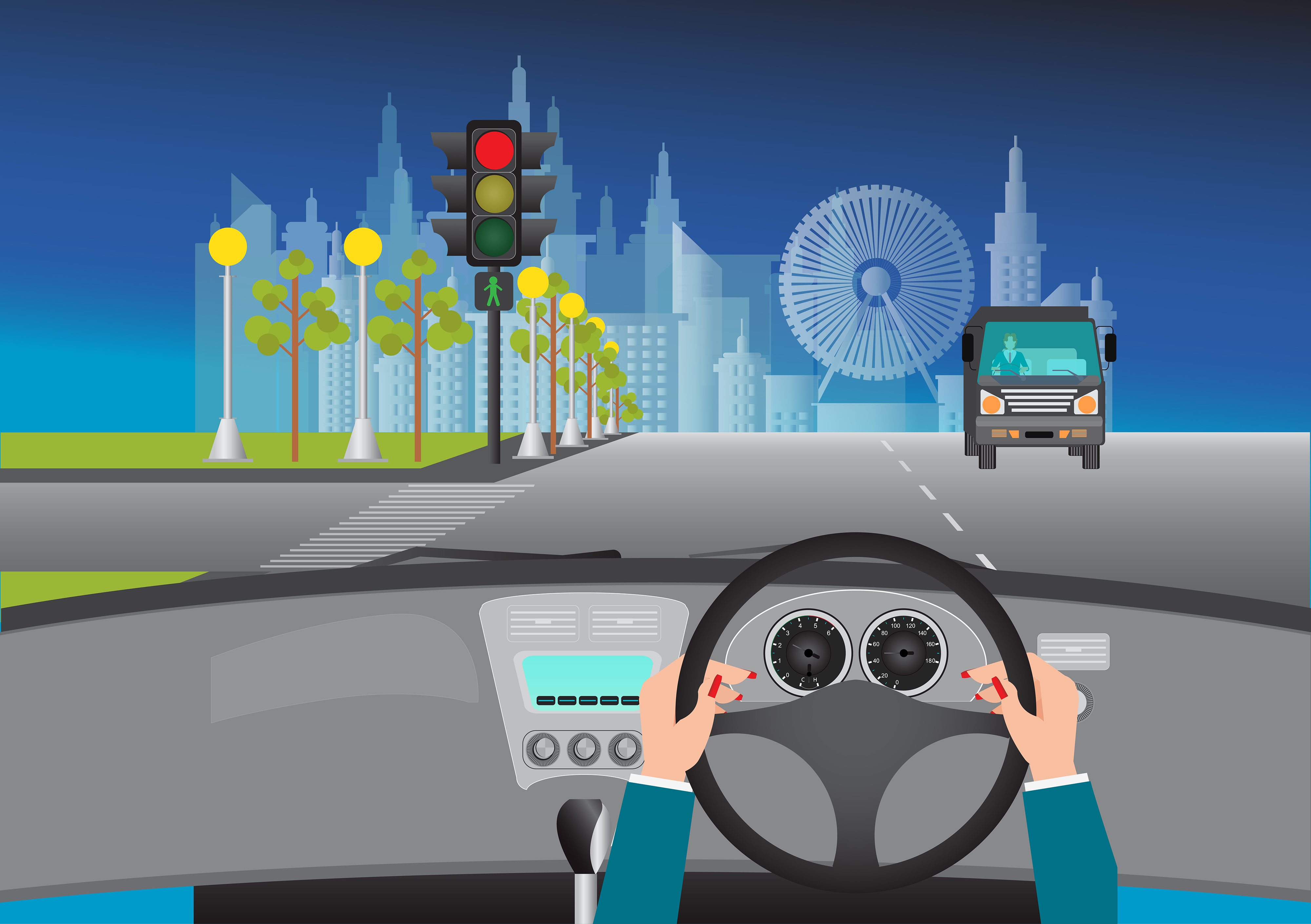
Why should we follow the traffic signals while driving vehicles?
Traffic rules are meant for your safety, and there should be no arguments against why you should ensure to follow traffic rules while driving or walking on roads. Traffic rules help protect you on the road as well as everyone else driving on the same road. People should know about the basic traffic signs and rules that should be followed while driving any vehicle on roads. People driving bigger vehicles need to be extra careful because of the multiple blind spots that are created by the big size of the vehicle.
Moreover, someone behind any bigger vehicle should also understand that there is limited visibility of the driver, and they should not try to come in the way of such vehicles which can be dangerous for both parties. Prevention is always better than cure but in case any mishappening occurs due to mistakes from either side, there are insurance providers who provide personal accident insurance as well. You can buy Personal Accident Insurance Online from any reputed insurance provider after properly comparing the benefits of all the different policies that are provided by different insurance providers.
Need for following road traffic rules
Government statistics show that more than 400 road accidents occur in India almost every day due to the negligence of the people driving and walking on roads. In many of these accidents, people get injured and in most of them, there are deaths of people involved also while some may escape unhurt. But, if traffic violations had not taken place and people were following the road traffic signs properly, there is a very high chance that the number of accidents will be very less than the current rate of 400 accidents per day.
Such traffic crashes and accidents also affect the Gross Domestic Product of the country, and the impact can be as high as 3% of the GDP. The traffic signs put on roads by the government for the people work to ensure that order ensues on the roads and signs are followed by the people on the roads. These traffic signs if followed properly will greatly help in reducing the accidents that occur daily on Indian roads.
Misconceptions amongst the people are aggravating the problem
There is a large population of India that do not follow traffic rules and is habitual of violating the rules, either due to no knowledge of the signs or even due to some misconceptions. There is a long time misconception in Indian public that it is not necessary to follow traffic signals after 10 PM and you see people racing past signals after 10 PM. This is completely false but people still following such myths is also the reason for many high-speed accidents occurring at night on city roads. People also do not follow one-way road rules and come with their vehicles on the road from either direction. They believe that reversing their vehicle on a one-way road is correct even if they are walking in the opposite direction, but this is completely wrong. You can reverse your vehicle on a one-way road, but you should be moving in the direction in which the road allows movement. These were examples of some common misconceptions among the people in India but there are more, and these myths lead to an increase in accidents on the roads.
It is necessary to train the people what different traffic signs and signals mean and what you should do when you see one of these signs. Campaigns should be undertaken by the government to train people on how to drive their vehicles properly on the road without causing a nuisance to others. Additionally, one must purchase personal accident insurance online or offline, as preferable, to get protection in case of such incidents.
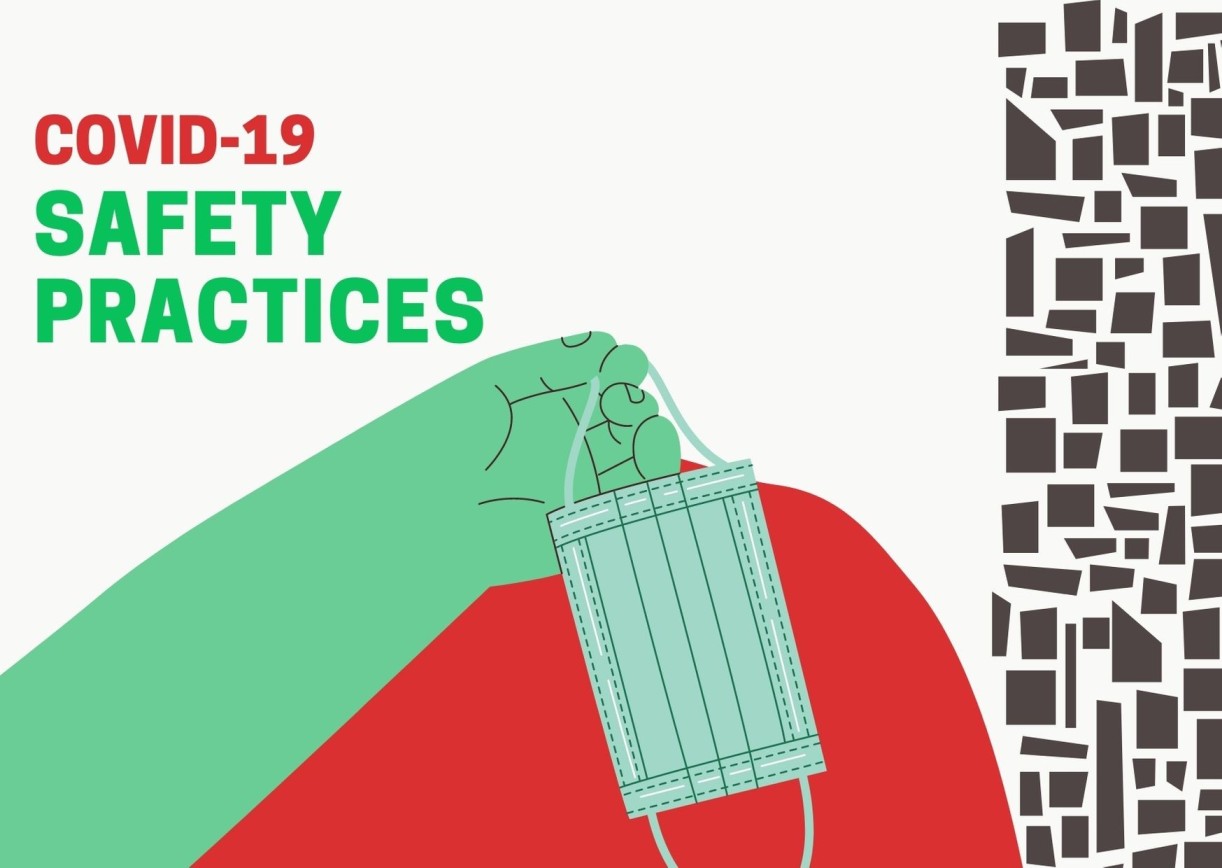
These 5 practices can help you stay protected from Covid-19
In these difficult and devastating times, we all want to keep ourselves protected from this deadly pandemic. The entire human race is praying to be safe and establish a Covid-free atmosphere in the world. But how can we make this happen? What measures can truly safeguard us from getting infected by this highly contagious disease?
1. MASK- A dependable shield
Wearing a proper mask should be our utmost priority whenever we move out of our houses or go to crowded places. Mask is the first wall of defence against the Coronavirus. The majority of the chances of getting infected are narrowed down if we wear appropriate masks suggested by our government and health authorities. But just wearing the masks is not sufficient; the mask should cover your face and nose properly. Only good quality masks should be used, cloth masks should be regularly washed, and use-and-throw masks should not be used more than twice. Masks should be handled only by using elastic strands. Avoid using masks that have filters installed on them, but use masks that are comfortable and easy to breathe. Remember, Mask ON....Life ON!
2. Maintain a safe distance today to have a safer tomorrow
Another crucial and effective preventive measure is maintaining a social distance of at least six feet when you are around other people. Avoiding close contact with people can nullify the chances of getting infected to larger extents. Even when you are at home, it is recommended to avoid getting close to the sick person or with low immunity, especially aged members of your house. Today this physical distance is a necessity to ensure the safety of you and also the people around you.
3. Safety is in your HANDS. Literally!
Our hands touch many things and surfaces daily, which means they are massively exposed to the virus. Later these hands can act as a carrier and can make our bodies vulnerable to the infection. So, we must wash our hands regularly and properly. Hands should be either washed by using soap and water or using hand sanitizers with a minimum of 70% alcohol. Especially when you are in a public place, carry a sanitizer with you always and use it whenever you touch an unknown surface. Avoid touching your nose, eyes, face, and mouth with unclean hands. Also, maintain personal hygiene and even keep your surroundings disinfected.
4. Vaccine is a must
Responsibly participate in the vaccination drive and get yourself vaccinated with both the doses of the vaccine. Also, encourage others to get themselves vaccinated. The vaccine is a game-changer during these challenging times, so be responsible and take the shot whenever available.
5. Your Health, Your Priority
In this depressing environment, it is wise to understand that staying positive can flush all the negativity and restore happiness. Every human is a superhero during these crucial times. Together we all can do wonders, follow these guidelines, and realize the importance of Covid appropriate behaviour and be a life saviour.
Lastly, in this extreme situation, closely monitor your health for any unexpected changes in your body. Never underestimate any symptoms, stay alert and consult your doctor in case you feel something odd. It is suggested to have an appropriate
health insurance
policy that acts as a rescuer for immediate cashless hospitalization and huge Covid related hospital expenses. You can buy Health Insurance Online in a contactless manner from a trusted source to ensure your health cover.
Let's make this difficult period a little lighter, both emotionally and mentally, and win this battle.

Getting the Covid vaccine? Here's what you need to know
Amidst this pandemic, the human race is praying desperately for the cure. After so many efforts, we are finally blessed to have a vaccine now. It is indeed significant that it could be made in such a short period; all credit to our advanced medical researchers.
Want to get the COVID-19 vaccine? Please check this step-wise procedure.
The first step to get vaccinated is to register yourself on the CoWin portal and get an appointment for the first dose of the vaccine. CoWin is a trusted platform designed by the government, which runs both independently and also on the Arogya Setu app. Avoid using any other portal or application for registering yourself as a lot of fraudulent portals are being run to fool people. Know exactly where the vaccine drives are rolling in your vicinity.
Also, it is important to know the difference between various doses, their side effects, and which one is suitable for you to take. Do this with the help of a physician or a doctor before taking your shot of vaccine.
Setting up your mind to get vaccinated without getting afraid is important. Vaccination is nothing but immunization!
What is to be done before getting vaccinated?
Register yourself on the government-suggested website and get an appointment for a particular day. As your day of vaccination is close, take adequate rest. Have enough sleep of 7-8 hours and avoid exhausting yourself. Also, if you are on some other medication or if you are on steroids or any immunosuppression, then consult your doctor.
For the safer side, if you feel any symptoms like cough, fever, cold, sore throat, etc. on or before the day of vaccination, then seek medical help. Consume a balanced diet to boost your immune system and to maintain your energy level. Stay hydrated, it is the key to stay calm inside out.
What to do when ‘it is the day’?
On the day of your shot, do a safety check. Ensure you are wearing a proper face mask and sanitize your hands properly. If possible, wear hand gloves too to maintain zero contact. Foremost, wear loose clothes when you are going to the vaccination centre because the vaccination spot is on the upper arm, giving easy access to the vaccinator.
The most important thing is to stay positive. Don't get anxious, take slow deep breaths. Think of a positive outcome – this shot is going to be a shield for you and others around you.
And, please carry your photo ID card mentioned in your appointment details for vaccination.
What are the steps taken after getting vaccinated?
The primary step is to monitor yourself. If there are any side effects, they will appear within 30 minutes after getting your vaccine shot. There are mild and common effects like swelling, redness on the arm, dizziness, headache, chills or mild fever, joint or muscle ache, etc. Remember that these side effects will subside within a few days.
If you feel severe symptoms like vomiting, fainting, allergic reactions, then seek medical help immediately. Avoid consuming painkillers or any other medication unless you consult a doctor about it.
The second dose is equally essential, so don't miss that. There should be a fair gap of 4-12 weeks between both the doses.
And most important of all is, even after getting vaccinated, don't stop taking precautions in day-to-day life. Continue wearing your masks, do sanitize properly and maintain social distancing.
Also, considering the risk pandemic brought, if you already don't have an existing health insurance, it is time to purchase a new
health insurance plan
.You can buy Health Insurance Online to get coverage to protect your family from sudden illnesses, hospitalization and medical expenses.
Let us be responsible, and let us all protect one another and help our community get through these pandemic hard times. Stay Safe, Get Vaccinated.

Tips for a homeowner facing a fire or smoke damage
Disasters have many faces and can strike anytime, anywhere; they can be seen in the form of quakes, floods, gas leaks, explosions, etc. and one of the most commonly known faces of disaster is fire. Damage felt after a partial or full-blown fire mishap is quite painful and nearly unrecoverable. However, if you have your house insured with ironclad insurance from a well-reputed fire insurance company, then your hassles can be reduced to a minimum.
A fire insurance policy plays an essential role in dealing with the losses and damages incurred due to fire. It is highly recommended to purchase fire insurance to safeguard your homes from any future calamity that a sudden fire or smoke can cause.
Here are some of the tips you can follow if you face damage from fire or smoke in your homes.
- Ask for an advance against your claim: - Right after the house has been gutted to fire, you might be forced to evacuate the house, considering the dangerous situation because of the smoke. In this case, you are eligible to get an advance from your insurance company so that you can buy your daily essentials. Inform your insurance company and ask it to issue a cheque and bring it to wherever you are staying. It will help you in this dire need and will be enough for your survival until your claim gets accepted.
- Checking for the extent of losses: - Once the fire tragedy is controlled, the first act of the homeowner is to calculate or check for the damage extent of personal belongings and property loss in the fire. Once the total loss is measured and counted, it will be easier for you to negotiate with officials handling the claim process.
- Having your receipts documented: - After facing a disastrous house fire, you may be forced to live in a temporary dwelling like a hotel or guesthouse close to your vicinity. It would be ideal to secure all the receipts, document all the costs and expenses carefully. Once you receive the claim for the house fire, you may also get a compensated amount you incurred on your living expenses.
- Check bank statements if you don’t have a receipt: - People tend to be careless when it comes to saving receipts for every new thing that they buy. While we might save receipts of the electronic items for warranty or claiming a refund, it’s not easy to keep those long bills every time you go for grocery shopping. However, your every online transaction would bring a huge relief; hence look for credit card statements and bank statements to prove the value of items.
- Back up your vocal claims with evidence: - After the fire tragedy, some items are destroyed or damaged to such an extent that for the insurer, it could be challenging to identify for assigning the claim. So, as a responsible party, you ought to click as many pictures and shoot videos as possible of the damaged, smoked rooms to show the physical evidence of the actual damage before it gets wiped by a restoration company.
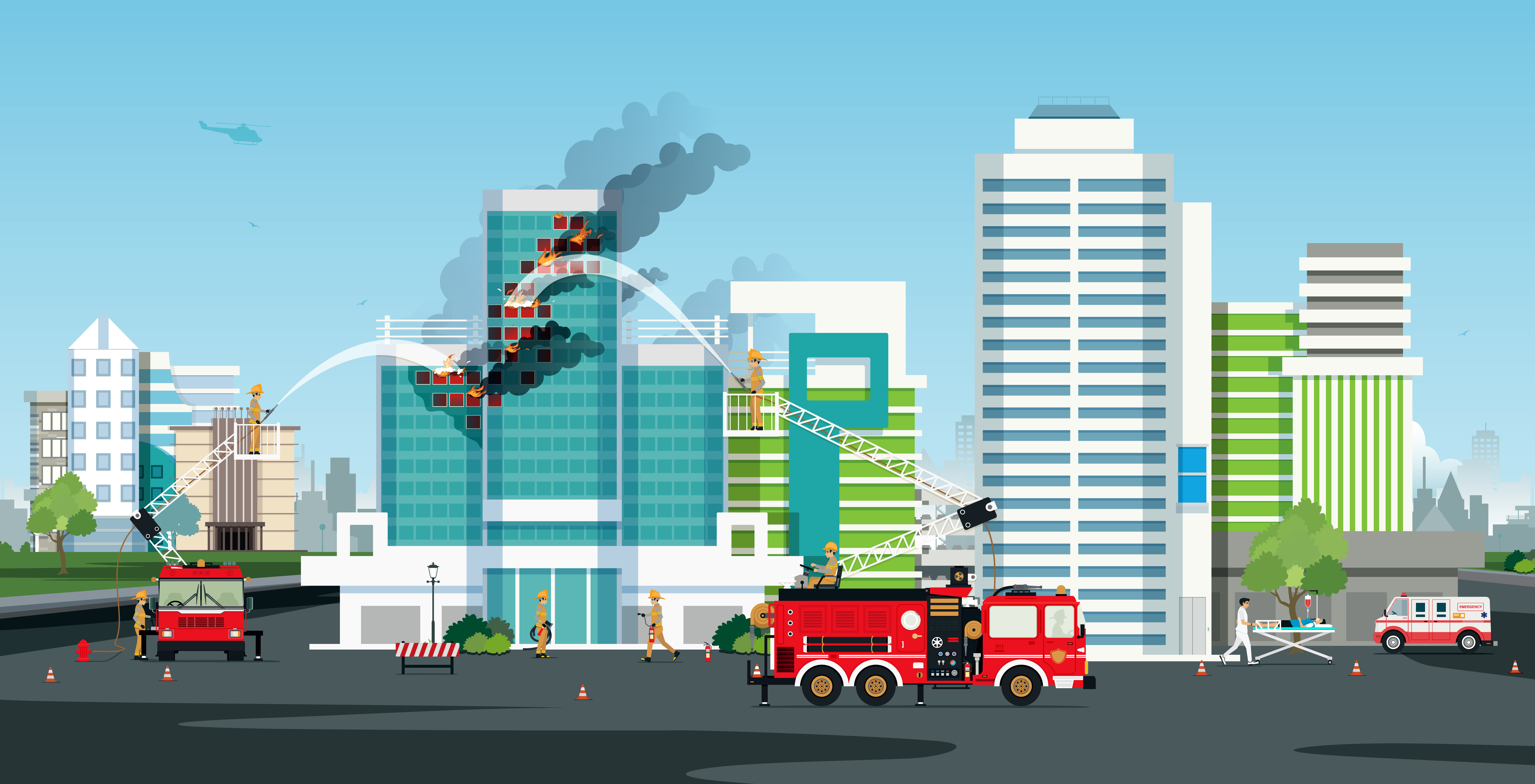
Quick Guide on Fire Insurance
Fire insurance is a contractual agreement between the policyholder and the insurer wherein the insurer in return for consideration or premium agrees to indemnify the policyholder or the insured person for the financial loss that he/she may suffer due to destruction of or damage to property or goods by fire during a specific period. You can buy as well as renew a fire insurance policy in India by online as well as offline ways.
The purchase of fire insurance helps to cover the cost of replacement, repair or reconstruction of the property, but fire insurance is generally not valid in case of war, nuclear risk or any such similar peril. Buying fire insurance is always a good idea because your property is your investment and buying a fire insurance policy will help you recover the damage and loss caused due to fire on your property.
Most of the policies offered by the different insurance providers cover the physical damage caused to your property by the following perils: -
- Fire
- Lightning
- Riot and Strike
- Earthquake, wind and storm
- Explosion
- Smoke damage
- Sprinkler Damage
- Damage due to aircraft
- Bush fire
- Subsidence, rockslides or landslides
- Impact damage which may occur due to the impact of road vehicles or animals or rails.
There are various types of fire insurance policies that are available in India, depending on the coverage requirement of the individual. The type of fire insurance policy in India you may choose also depends on whether the asset which is being insured is a fixed asset or a non-fixed asset. Depending on the type of asset being insured, insurance providers have different types of fire insurance policies available. The types of policies for fixed assets such as homes are: -
- Replacement Value Policy - The asset which has been insured is replaced if it is damaged by fire wherein the insurance company pays the replacement value of the damaged property.
- Reinstatement Value Policy - This is almost similar to the Replacement Value Policy but with an added clause that the insurance company will replace the damaged property to its original condition before the occurrence of the peril. This policy applies to fixed assets like buildings.
There are many different types of policies for non-fixed assets, such as: -
- Specific Policy - This policy covers the loss up to a specific amount which is less than the real value of the property.
- Comprehensive Policy - Also called ‘All in One’ policy, this policy covers loss due to fire, theft, burglary as well as other third-party damages.
- Valued Policy - Under this policy, the insured person can recover a fixed amount which was agreed to at the time the policy was bought.
- Floating Policy - This policy covers loss due to fire to property belonging to the same person but at different places.
- Valuable Policy - The sum insured is not decided at the time of buying the policy but instead, the claim amount is calculated at the time of loss.
- Consequential Loss Policy - This policy covers the loss in profit caused due to disruption of the business by damage due to fire.
Buying a fire insurance policy for your house or your goods is always a good decision, but you must buy a policy which covers the risk that you face and understand the nature of the asset that you want to insure and then buy an insurance policy accordingly.
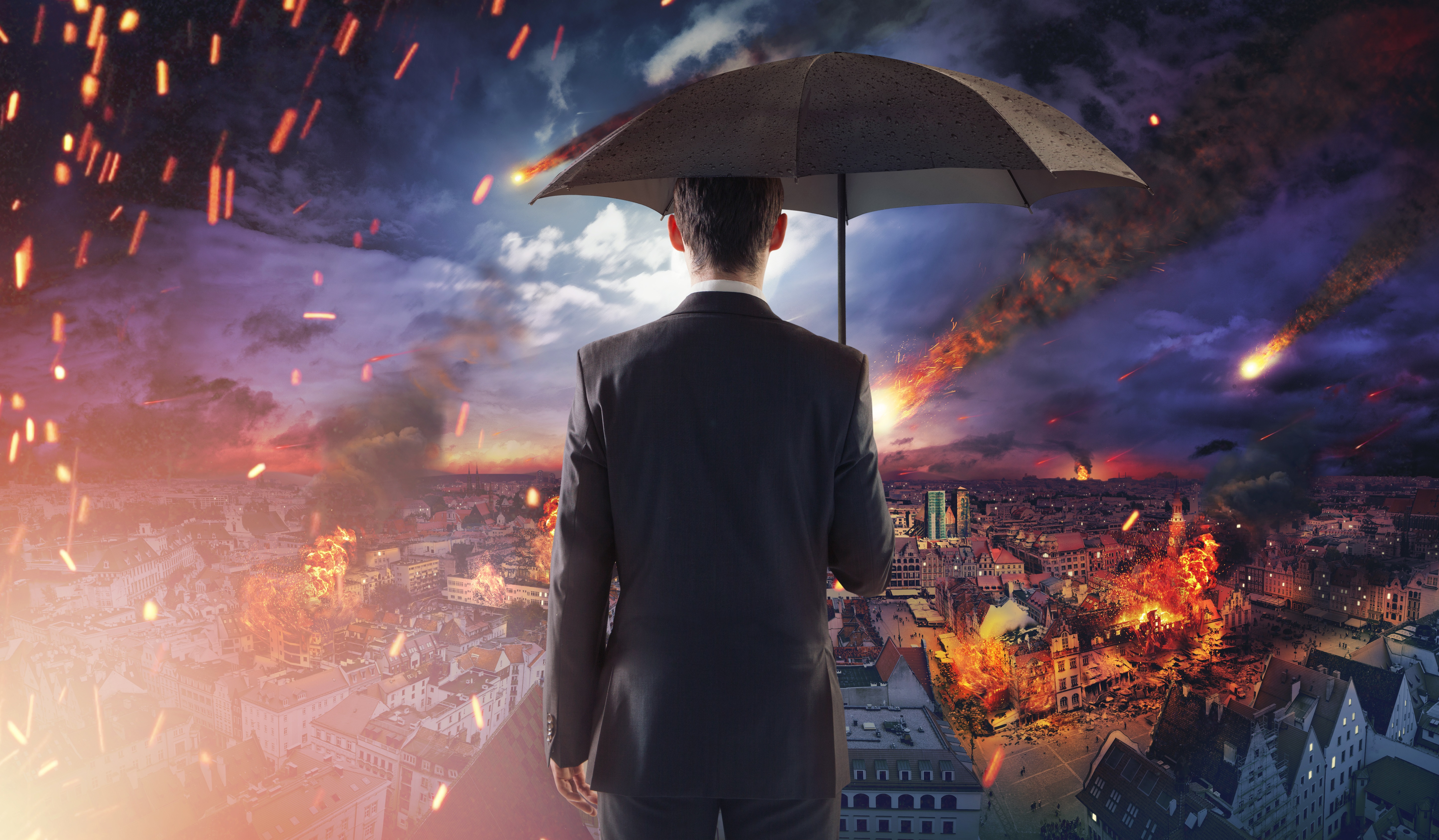
Quick Tips on Fire Insurance
Fire and related events can cause very big losses, and they have become one of the biggest causes of losses in recent times. The damage due to fire can include non-movable assets like homes and buildings as well as movable assets like goods. To ensure you are protected against any unforeseen damage of your property by fire or any fire-related event, you can buy fire insurance for your property from any of the fire insurance companies in India. Fire insurance involves many things and some things must be taken care of while buying fire insurance or renewing your insurance so that you need to pay a lesser premium as well as while filing claims so that you get the best deals.
Things covered under fire insurance: -
Fire, explosion and implosion Lightning Damage due to aircraft Strikes and riots Rockslides and landslides Impact damage Malicious damage Bush fire Smoke damage Storm, typhoon Sprinkler damage Earthquake
Things which fire insurance companies in India do not cover: -
Perils like war, civil war, invasion and similar events Rebellion or Martial law and similar events Underground fires and losses due to that Spontaneous Combustion Losses due to pollution or contamination Theft related losses occurring during or after the fire Consequential losses
What should be the policy amount of your fire insurance?
In most cases, the total sum for which you are buying the fire insurance should be equal to the total cost needed to rebuild or reinstate the property and the professional fees involved along with the charges for the removal of debris.
What is the difference between Replacement Value Policy and Reinstatement Value Policy for Fixed Assets?
In Replacement Value Policy, the insurance company pays the cost of replacing the complete asset that has been damaged or lost due to fire and related events whereas in case of a Reinstatement Value Policy; the insurance company pays the cost to replace the damaged property to its original condition it was in before the loss due to fire. While Replacement Value Policy can apply to other assets, the Reinstatement Value Policy is only applicable to buildings and no other assets.
When buying a fire insurance policy from fire insurance companies in India, you must consider the following things:
The type of risk that the policy covers and if the risk covered by the policy matches the risk you face for your property. The nature of the asset you want to insure because there are different types of policies available for fixed assets and many other different types of policies available for non-fixed assets. Understand the coverage duration of your policy and when to renew the policy.
What information you should get from the fire insurance company while buying the policy?
Premium Payable The insurance cancellation and refund policy Period of coverage Scope of policy coverage Non-standard exclusions Claims reporting procedures
What things are considered to calculate the premium?
The insurer uses many different kinds of data to come up with a final number which you need to pay as premium annually:
The type of policy The type of risk or risks covered The total sum insured The total value of the asset being insured How the asset being insured is used by the owner of the asset The expected risks that can damage the property being insured Whether the person has taken a policy extension or not
How to claim if your asset is damaged?
You need to immediately contact your insurer as soon as your insured property is damaged. The insurer may appoint an independent loss adjuster to take care of your claim, and you will be required to fill a form to start the claim process. The insurer will undertake proper investigation and will then accept the claim if everything is fine.


